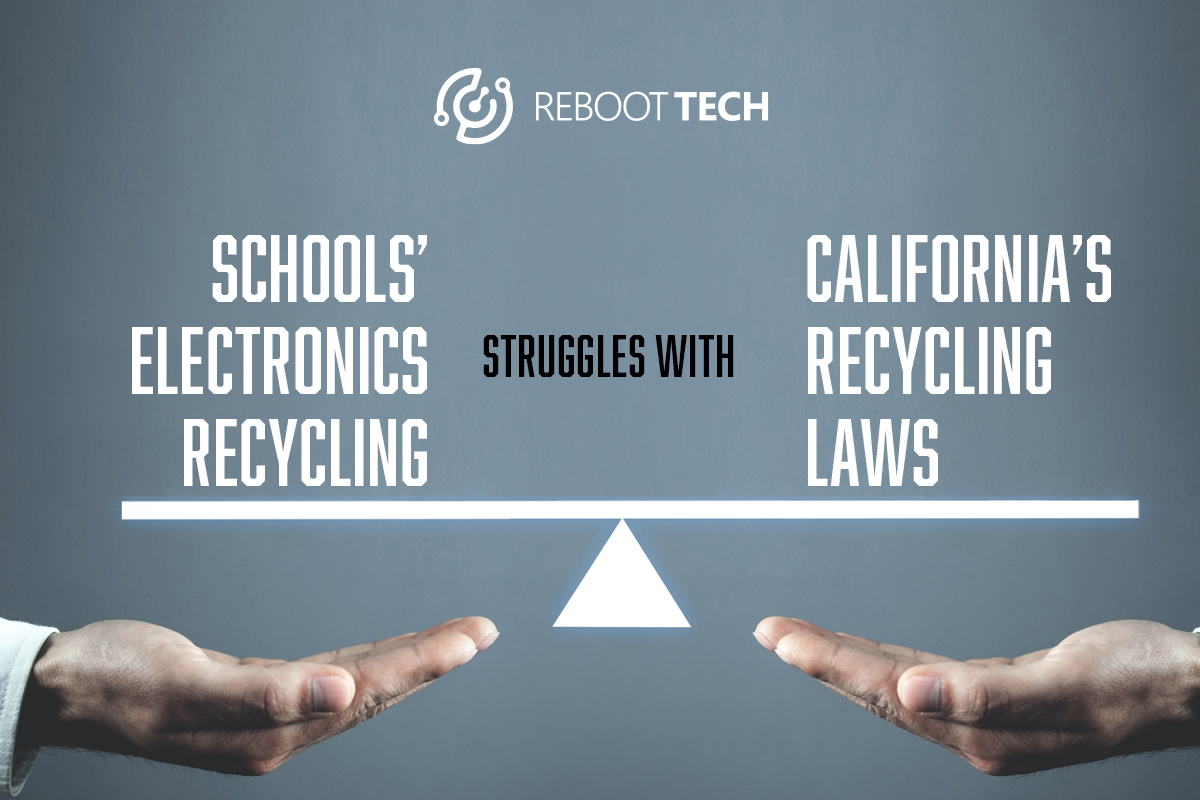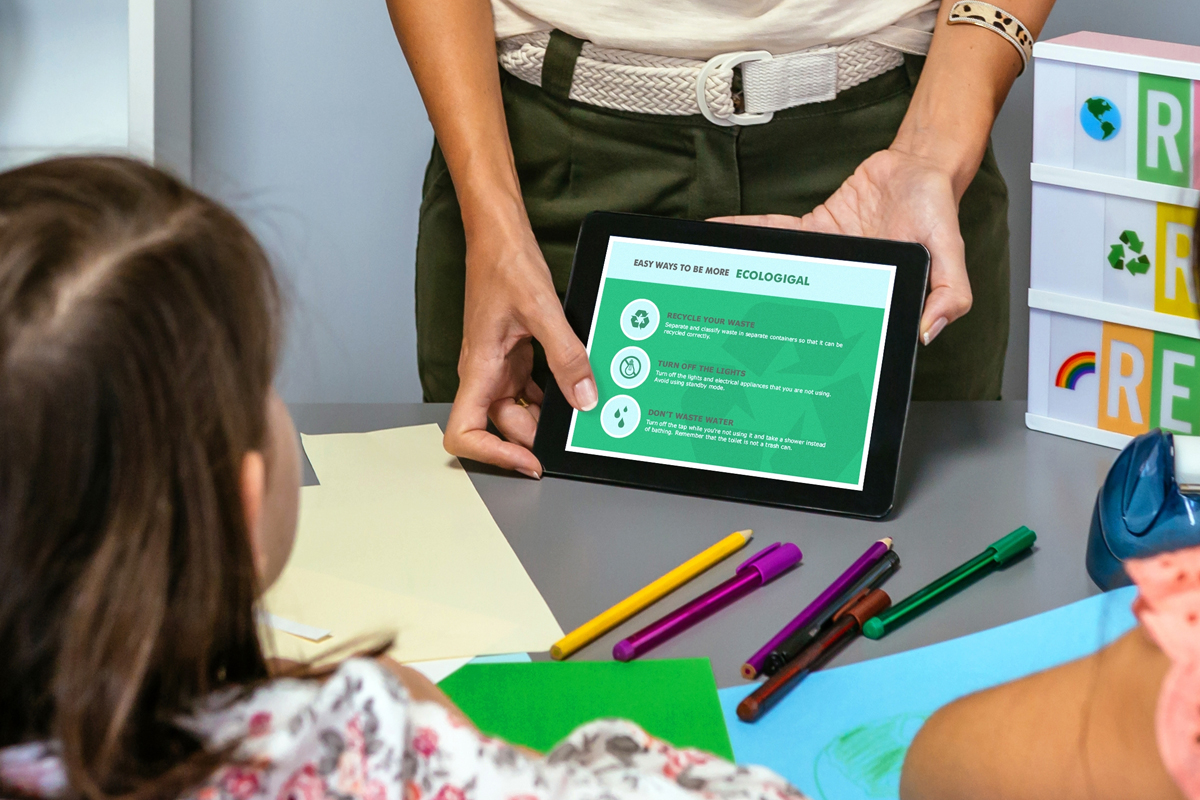
The Impact of California Solid Waste and Recycling Laws on Schools’ Electronics
In California, solid waste and recycling laws are important for helping the environment and cutting down on landfill waste. But for schools, especially those with tight budgets, these regulations can be difficult when it comes to getting rid of and recycling electronics. Let’s look at the problems schools have and see what potential solutions there are.
Challenges Faced by Schools
Meeting California’s recycling and organic waste laws, like AB 341 and AB 1826, can be challenging for schools. These laws require the schools to implement recycling and organic waste recycling programs to divert solid waste from disposal. However, many schools lack the resources and infrastructure to meet these requirements well.

Budget constraints and limited resources make it even harder for schools. Investing in recycling bins, composting facilities, and staff training costs a lot of money that schools already don’t have much of, leaving them struggling to find good solutions to meet regulatory mandates.
Struggles with Implementation
One primary issue for schools is making sure they have enough recycling and compost bins for ease of access. AB 827, which started on July 1, 2020, says schools have to have these bins next to regular trash bins for recycling and organic waste diversion. But getting these bins and making sure they’re easy to use and labeled correctly is hard for many schools.
Schools already struggle with managing waste, so managing e-waste with these new regulations can create even more challenges. For example, let’s say a school gets new computers and needs to get rid of the old ones. They can’t just throw them away; they have to recycle them. However, finding a place to recycle them and figuring out how to do it right can be a real headache for schools.

Moreover, teaching staff and students about waste and e-waste diversion practices demands time, effort, and resources that schools might lack. Without proper training and awareness, meeting recycling laws can be even more challenging, potentially resulting in penalties for non-compliance.
Potential Solutions
Despite the challenges created by California’s solid waste and recycling laws, there are some solutions that schools can find to manage these challenges. Working with waste and e-waste management companies offers schools helpful support and knowledge to create recycling programs that fit their needs.
Looking for grants and funding for recycling projects can help ease the financial strain of meeting standards. Government and nonprofit groups have various grants and programs to help schools with eco-friendly waste management, giving crucial money to help with budget issues.
Lastly, forming partnerships with nearby businesses and community groups helps schools improve their recycling efforts. By working together and sharing resources, schools can better handle waste. By connecting with others outside their area, schools can better understand waste laws. Also, these partnerships help schools promote care for the environment in their communities, getting people involved in protecting our planet.
Conclusion
California’s laws on waste and recycling greatly affect how schools handle electronics disposal. Yet, schools, especially those with limited budgets, face difficulties meeting these requirements. This underscores the importance of finding new ways to comply. By tackling resource constraints, forming partnerships, and seeking outside help, schools can better manage waste and encourage eco-friendly practices, benefiting both the environment and future generations.





